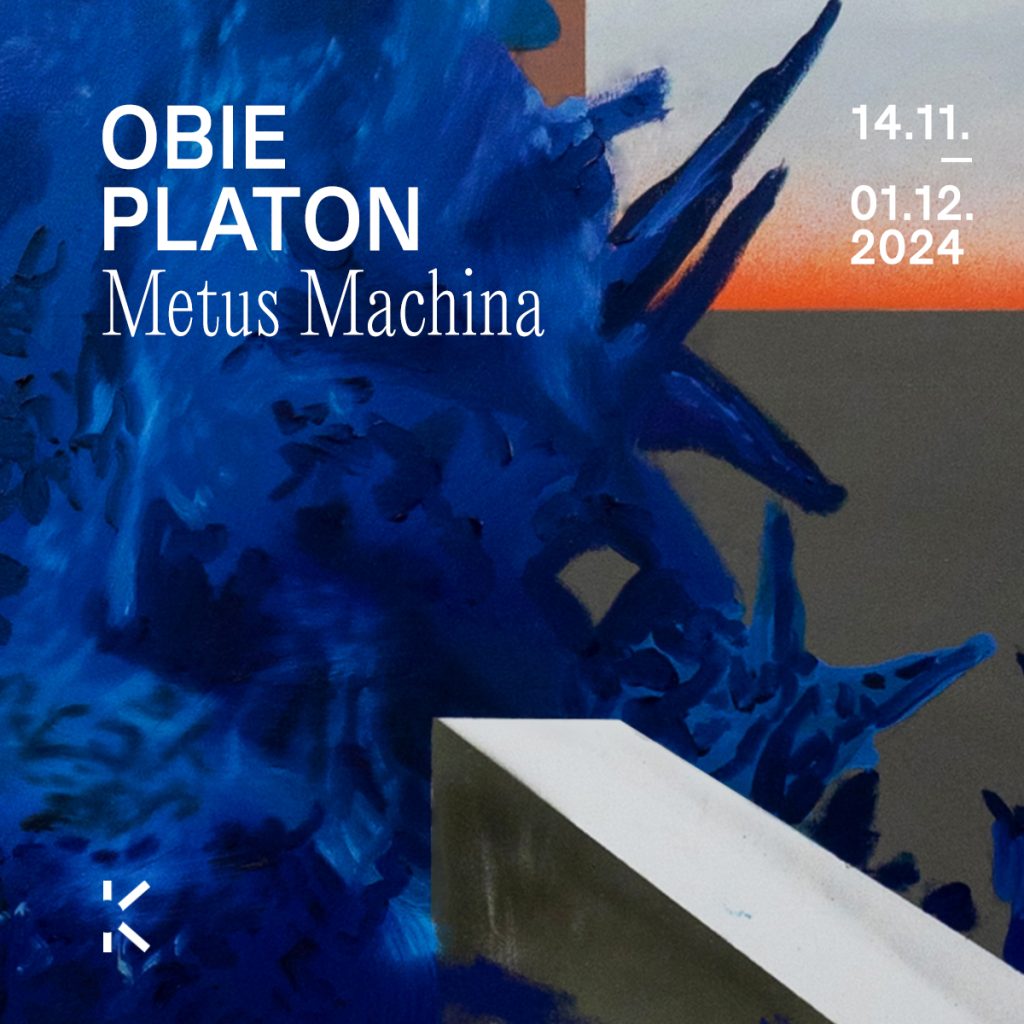
OBIE PLATON
Metus Machina
The works of Obie Platon, remarkable for their dynamic forms and intricate geometry, resonate deeply with Arnold Toynbee’s “theory of condensed times.” According to Toynbee’s perspective, the evolution of civilizations is driven by a cyclical process of challenge and response, where moments of crisis demand that society make an inevitable choice between adaptation and decline. Obie Platon, a pioneer of Romanian street art, an art movement with deep roots in the social sphere, embodies this synthesis, with his works capturing the accelerated pace of modernity. Viewed through this lens, Obie Platon’s art becomes a chronicle of the tensions and transformations within the modern urban landscape, transcending the boundaries of the city to become an expression of a universal civilizational spirit—an artist for humanity.
Obie Platon has established himself on the national and international art scene through his presence in prestigious exhibitions and festivals, as well as through mural projects in cities like Hamburg, Shanghai, Budapest, Bucharest, Cluj-Napoca, and Timișoara. His artistic journey, from the mural of Saint George fighting the dragon to his most recent exhibitions at the Kulterra Gallery, unfolds as an extensive visual study of an ever-evolving age, offering the public a subtle and reflective critique of current realities. This trajectory, marked by exhibitions such as “Humanutopia” (Brâncuși Hall, Parliament Palace), “Dualitas” (Avanpost Gallery), “Satisfashion” (Shanghai and Beijing), “Prime Time” (United States Embassy), CNNCT/CNNT (Kulterra Gallery), Mindtricks (Kulterra Gallery), and participation in events like the opening of the Shakespeare International Theatre Festival (Craiova) and Expo 2020 Dubai, forms a genuine mosaic of the political, social, economic, and cultural tensions and changes of the past decade.
In his current exhibition, Metus Machina, the theme of technophobia is explored through a series of paintings that reflect humanity’s complex relationship with technology. Each work serves as a visceral commentary on the anxiety and alienation often accompanying our increasingly digital lives, while approaching these themes in an optimistic tone. In a deep exploration of disconnection and alienation, the artist creates a visual paradox through a vibrant, colorful palette. The machinery in these works is not merely a formal aspect but becomes a tool for introspection on our relationship with the digital world.
Machinery, represented by striking images of factories and androids, serves as a metaphor for the relentless pace of modernization that has reshaped civil society. Through a rich interplay of images and symbols, the exhibition invites viewers to reflect on the influence of machines not only on our civil lives but also on our spiritual identities. It raises essential questions about the balance needed between embracing technological innovation and preserving the core values that sustain our communities and beliefs.
Thus, this series of works becomes a compelling commentary on the transformative power of machines, urging us to navigate the complexities of modern existence with care and intention. The artist challenges us to confront the dual nature of technology—its capacity to connect and create, as well as its potential to generate alienation and dehumanization—invoking an ongoing dialogue about the role of technology in the shared human experience.
Through his entire artistic journey, Obie Platon builds a corpus of works that not only explore the complexities of urban life but also resonate with universal experiences. His entire body of work, including a recent piece incorporated into the Vatican Museum collection, generously donated by two young Romanians, Sophie and Luca, unfolds as a sweeping fresco of the transformations of the past decade, capturing, like a complex puzzle, the essence of the social, political, and cultural changes that have defined this period.
Exploring current themes such as corporatism and globalism, war and pandemics, social confinement, global warming, media manipulation, robotization, and technophobia, Obie Platon maps, through his entire oeuvre, a visual cartography of modern life’s struggles. In an artistic crescendo of these themes, his upcoming exhibition aims to transcend global borders and reach toward extraterrestrial horizons.
The artist expresses gratitude to academician Răzvan Teodorescu, art critic Cătălin Davidescu, and Professor Petru Lucaci for their support. He fondly recalls Professor Lucaci’s words at the opening of the Humanutopia exhibition at Brâncuși Hall of the Parliament Palace: “Obie Platon, as a chef d’oeuvre of Romanian street art, will remain, like any chef d’oeuvre, in the history of Romanian fine arts.”
Exhibition Opening
Kulterra Gallery, str. Știrbei Vodă 104 – 106, sector 1, Bucharest.